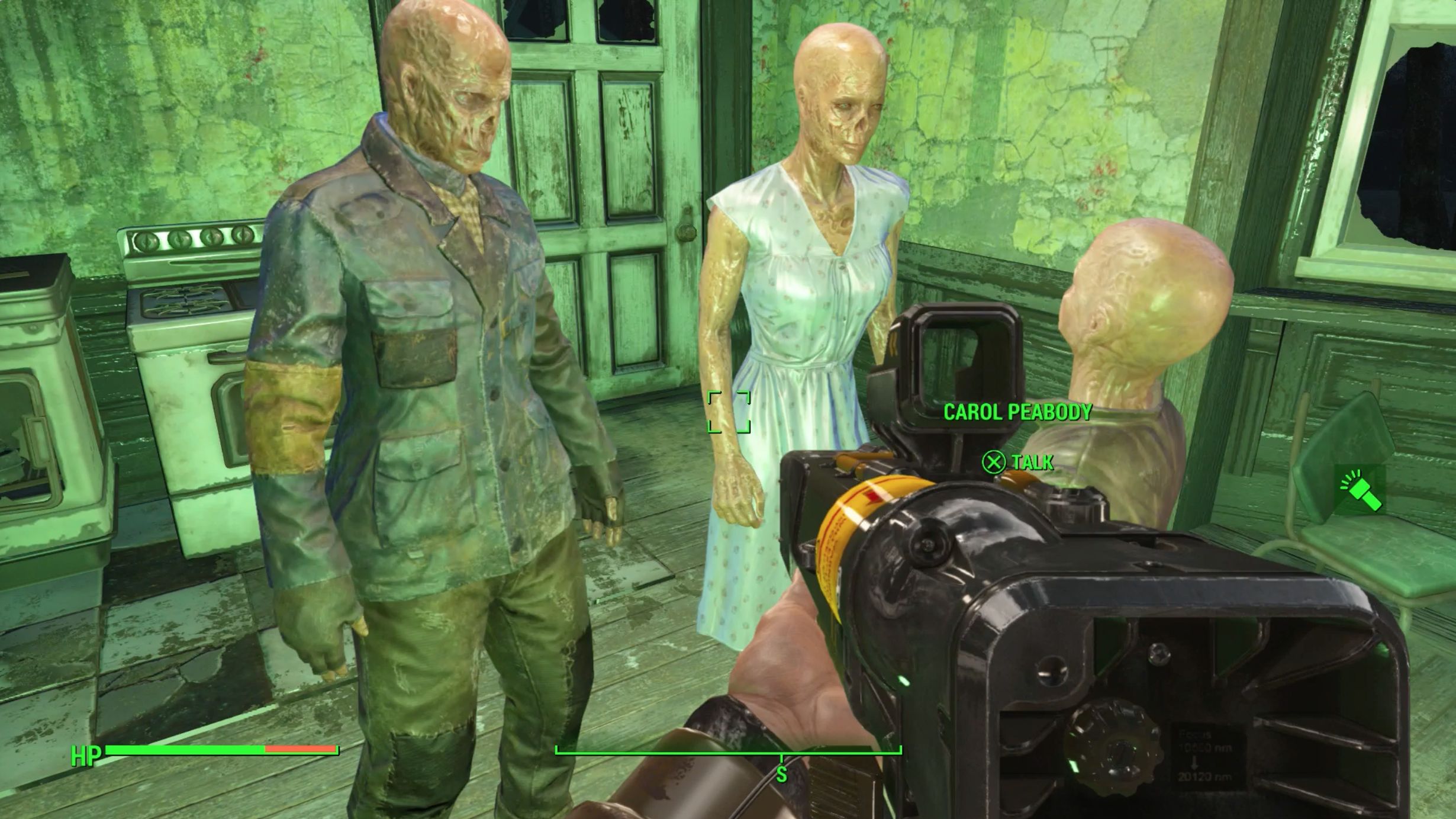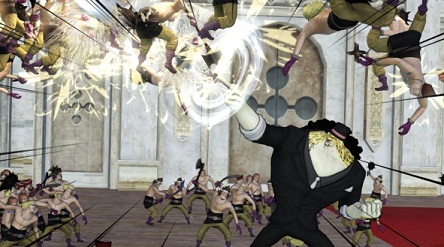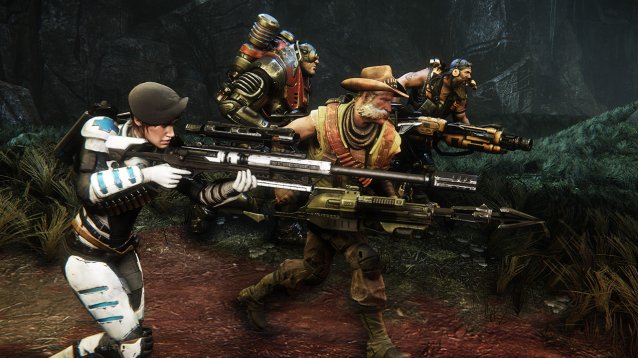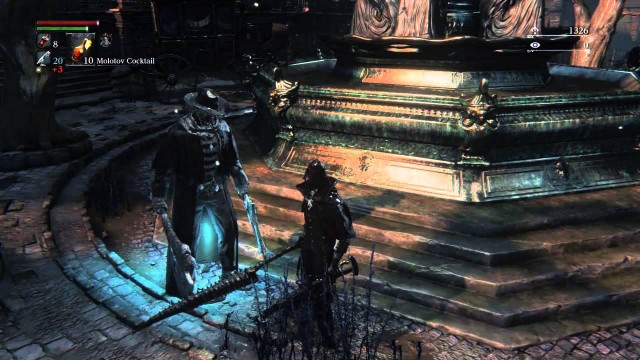


The games industry is at war. On several fronts, nasty enemies are advancing and are damaging gaming as a whole. At least, that’s what people may come to think, reading the various ramblings from industry big shots all over the web. Piracy is one thing. All platforms have problems with it, though the one worst hit is apparently the PC. What recently has become the worst enemy of the industry though seems to be what can best be described as an alternative business model to the one of major publishing - The sales of used games.
In hindsight, the notion to put used game sales on the same level as piracy seems absurd. Where people pirating games aren’t spending any money at all on a game, a consumer engaging in the business of used games sales is indeed laying down hard earned cash to play a game. This customer - unlike the pirate - is not breaking any kind of law. This customer is legitimately buying a proper product. So then, why the attempt to all but criminalize this consumer behavior?
One of the big problems here is not the end consumer, but the lucrative business that has arisen out of the organised, large scale sale of used games.One of the big problems here is not the end consumer, but the lucrative business that has arisen out of the organised, large scale sale of used games, spearheaded by EB Games / GameStop. This company makes most of its profits with used game sales, and has become the role model for the used game market. Used games are bought back from the customer for a fraction of the price, sometimes even traded in ‘bulk’ against a price reduction for another game. Then the used game is sold for a low margin below the suggested retail price of a new copy of the same item. Sometimes for as little as $2 less, which apparently is enough to incentivise gamers to buy a used copy over a new one.
The problem here is that, unlike film, there is not yet a valid model of compensation built into games to accommodate for used sales or - even worse, and that’s yet another problem - rentals. The publishers and developers don’t see a cent of the revenue produced by used game sales. On principle this might seem okay, but seeing as how there is now an entire industry that has evolved around this, used game sales do in some ways appear rightfully problematic.
Used games, like pretty much every commodity in the world, have always been traded. It is only now that this is seen as a loss of revenue for the people making the product. Some of that might be due to companies like GameStop sporting massive profits, which pull the used game market , formerly hidden in obscurity,out into broad daylight, exposing just what caliber of profit can be made.
Of course, this is a chicken-egg question, since it’s just not that simple. The possibility is there that GameStop and its ilk helped develop that market into the juggernaut it is today.
As with attempts to fight piracy by the means of rabid DRM measures that cripple the player experience for those who bought the game while the pirates see fuck all of it, the industry at large is taking ever more manic steps to tackle that problem and take the profits back. EA started with ‘Project Ten Dollar’, which saw their games delivered with a chunk of DLC that the buyer of a used copy would then have to buy for ten dollars.
Other publishers are following suit now. DLC though seems the weapon of choice against the perceived used game plague. A section of the game, or an enticing feature like the nudity in The Saboteur, is cordoned off from the unwashed masses buying used games via DLC, and then re-sold. Another method is the ‘online pass’ which cordons off all online features and especially multiplayer for used game buyers.
While these methods might be successful, I find myself asking where this will end. That DLC trick is now pulled with a growing number of things. For one, there’s pre-order DLC. Then there’s bastard-pre-order DLC, that will only be granted to people preordering up to a specific time, sometimes months in advance. So that’s now exclusive content that not even people buying the game brand spanking new will see without paying extra.
Of course, those are methods that go beyond just incentivising sales of new games over those of used games, but incentivising pre-orders sometimes half a year in advance. There’s also the subscription model that’s not yet really widely used. This actually makes some kind of sense for games that have a heavy multiplayer component with frequent content updates, since here the players actually get more content for their money.
The question remains though, where will it stop?The question remains though, where will it stop? With piracy, the pirates clearly won over the regular, honest customers since a pirated version of a game never sports the humiliating copy protection software or DRM measures that kill the game when the PC drops the internet connection, or similarly mind bogglingly stupid things. With used games though, it seems everybody loses. The honest customer ends up wondering, if the version of the game he got is the ‘actual’ game that includes everything he expected, content wise. Just take a look at all the different versions of Batman: Arkham City out there with the myriad of different costumes, or the different versions of the latest Assassin’s Creed game with extra missions and outfits, sometimes retailer or pre-order specific. As a loyal customer, you can’t but feel screwed. As the person buying the game used even more so.
And it supposedly gets worse, as the next generation of consoles may bind a copy of a game to the console’s serial number, making it impossible to play on more than one machine ever, thereby once and for all getting rid of used games and rentals alike.
But ultimately, isn’t that missing the point? Someone who buys a used game is willing to spend money on games, yet for whatever reason chooses to get a pre-owned copy for a few bucks off. What does that tell us? For once, that game pricing might just be too damn inflexible. What we get nowadays as the normal version is what in an ideal world should be marketed as the ‘economy’ version. No booklet, few if any DLC add-ons. It’s similar with CDs, where some labels have started experimenting with barebones versions for a lower price which include a paper sleeve and no booklet. However with games, we get the economy version for the full price and have to pay extra for the one with the neat stuff for the fans. Also the sale of a used game means that somebody has actually bought that game in the first place. And that person will probably re-invest the money he made on a used game in another brand new copy of another title.
Of course, I have to admit that I’m making generalised assumptions here that I can’t back up with hard evidence. It’s difficult to find actual numbers on this phenomenon, so I’ll keep arguing with what I think is common sense. Just as a pirated copy doesn’t equate a lost sale, a used sale surely does not equate the lost sale of a new game. Eventually, this is a war in which we, the players, will lose. What to do against it? At this point I think complaints to customer support and maybe even higher ups are in order. The problem is not that we’re by and large unwilling to support the industry, the problem is that the industry which has grown larger than movies is struck by what appears to be insatiable greed for more profits, a problem it shares with the motion picture and music industry, who are treating their loyal customers similarly. The only difference is that those industries have the benefit of a working compensation model for used sales. Maybe that would be a starting point to calm this conflict down instead of further attempting to criminalize loyal customers. What will be next? Saying that not pre-ordering a game is the same as piracy?




 How to Run Windows Apps & Games with Linux Wine
How to Run Windows Apps & Games with Linux Wine Prototype Guide
Prototype Guide Evolve Preview: A Monstrous Amount of Fun
Evolve Preview: A Monstrous Amount of Fun How to Summon all the NPC, Location and Requirements in Bloodborne: The Old Hunters
How to Summon all the NPC, Location and Requirements in Bloodborne: The Old Hunters 9 Camera Deals You Can Take Home Right Now
9 Camera Deals You Can Take Home Right Now